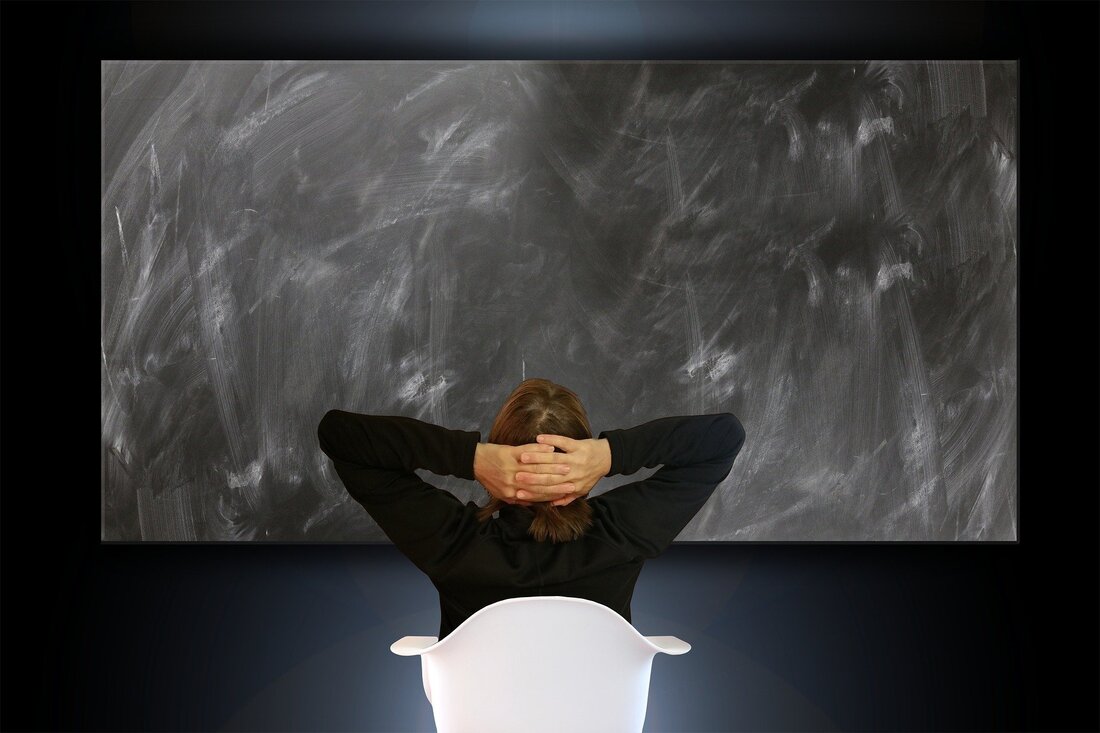|
‘If you’re not confused, you’re not paying attention.’ (Tom Peters) Leaders who develop strategy collaboratively with diverse key stakeholders often find that inviting others in proves critical to its success. It recognises that no leader, no matter how knowledgeable or experienced, can know everything and it values the contribution that others can bring. That said, leaders can also feel overwhelmed if levels of participation are high and inputs are complex. These tips (below) are, therefore, designed to help leaders sift through and make sense of the reams of hopes, ideas, information, impressions, data etc. that they may surface and receive through strategy research and through inviting input from various people and groups. They are not intended as a prescriptive one-size-fits-all set of rules. Have a glance and see which, if any, work best for you. 1. Don’t panic In the midst of some great information and ideas, you are also likely to receive input that will look unclear, confusing or contradictory. There may be handwriting you can’t read, comments in shorthand that made sense to the person who wrote them but don’t make sense to you etc. You may receive so much input from diverse people and sources that it could feel bewildering. If so...don’t panic! 2. Research questions Go back to your research questions. Use them as a guide to sift through the input you have received. How far does the overall input contribute to answering the questions you set out to address? Has any of it raised wider or deeper questions that need to be acknowledged? Is any of the input interesting but distracting? Avoid the temptation to race down fascinating rabbit holes that take you off track. 3. Test a hypothesis Some leaders suggest formulating a hypothesis – a provisional answer to the questions you set out to answer – before sifting through responses. This provides a focus, a testing stone, and enables you to check each response: ‘Does this support or contradict the hypothesis?’ If it doesn’t relate to the hypothesis, shelve it for now so that you don’t get distracted. You can always circle back to it later. 4. Cluster responses Some leaders prefer to start with a blank sheet, skim through responses and note intuitively what core themes or ideas emerge. You can then place responses under those themes, adding or modifying themes as the sifting process progresses. Don’t worry about identifying the themes perfectly too early. You can always hone them and see what answers they point towards later. 5. Test your biases It can be tricky for leaders to look at responses afresh, especially if we have a strong interest in the work we do currently or strong views about how we should move forward. During the research phase, I refer to these challenges as ‘blind spots’ (assumptions) and ‘hot spots’ (sensitive areas). Invite others to test your assumptions and to point out if you appear to avoid challenges or new ideas. 6. Trust the process We may have invited and received input from a diverse range of people and groups. Whilst no strategy research will ever be 100% exhaustive and conclusive, the insights that we draw through a collaborative strategy venture will in most cases be good enough – that is, good and enough as a signpost to the future. Pray, be confident in what you know and excited by what you discover!
12 Comments
'The art of proposing a question must be held of higher value than solving it.' (Georg Cantor) I spent the past couple of weeks working with the public sector in the UK, providing Action Learning facilitator training for a team of managers and professional mentors. The purpose of the initiative is to equip the mentors to offer Action Learning sets to registered managers of care homes. Action Learning will enable those managers to navigate complex challenges they face, whilst building on the existing skills portfolio of the mentoring team itself. One of the challenges for mentors can be to make a shift from offering information or advice to mentees, which is often core to a mentoring role, to offering open questions in an Action Learning style instead. One participant, Mark, offered a useful insight to peers in his training group, to help make this psychological and practical transition from guidance to questions: ‘If I think of a solution and frame it as a question, it’s likely to come across as a suggestion.’ I found this very interesting because it signals the implicit, subconscious influence that our thinking, as facilitators or peers, can have on what we do and on the impact it can have. This could include, for instance: our beliefs about our role; how we believe we could add value to resolving an issue; what we believe a presenter could or should do etc. – even if we don’t say it out loud. This calls us to prepare ourselves mindfully before we step into a round. 'To err is human. To blame it on someone else shows great management potential.' That made me laugh! It’s a fun variation of Hubert H. Humprey’s, ‘To err is human. To blame someone else is politics.’ But wow – how easy it is to deflect and project our own faults and failures outwards onto others. We see it happen all over the place, from interpersonal relationships to international relations. It’s a way of defending ourselves; of trying to avoid or escape the costs of responsibility; of promoting ourselves; of appearing innocent or superior. It’s about helping us to feel good about ourselves and-or wanting someone else to feel good about us. It's quite tricky if we don’t know we’re doing it – and it can lead to potential high-risk consequences. ‘Self-deception is like this. It blinds us to the true causes of problems, and once we’re blind, all the solutions we can think of will actually make matters worse.’ (Arbinger Institute: Leadership and Self-Deception, 2000). This poses a difficult question: how to deal with our blindness if we don’t know we’re blind? And what if, if we’re honest – for whatever reason – we don’t want to know? An old adage goes: ‘There are none so blind as those that won’t see.’ Ignorance is bliss? I’ll start with the last question first. If I’m working with a person in coaching or a group in action learning and I sense resistance in this area, I won’t push too hard. It could, for instance, trigger repressed trauma or suppressed anxiety. Instead, I may pose an invitation, e.g. ‘Is this something you would find useful to explore further? What, for you, would be the potential benefits of exploring this, or the potential costs of not exploring it? If you were to explore this, what support or challenge would you need from yourself, me and-or others?’ It’s their call, their choice. Next to the first question. This touches on a field known as critical reflexivity. It’s like holding up a mirror to ourselves rather than fixing our gaze elsewhere or onto others. We can think of it as something like this: ‘What within me – e.g. in my own past, culture or world – is influencing what I’m thinking, feeling and doing now?’ This could include, for instance, our beliefs, values, hopes, fears and expectations. It could also include hidden vested interests; that is, things we want to protect or preserve and-or to acquire or achieve. Such influences act as subconscious filters. In coaching and action learning, I work with people and groups to help them learn to pose searching questions to themselves in a spirit of open curiosity and discovery, e.g. ‘Who or what is holding my attention in this relationship or situation? How am I feeling? Who or what am I not-noticing? What assumptions am I making? How is my past influencing my present? Who or what matters most to me now? How might I be evoking this response in the other party? What am I willing to take responsibility for? What do I want or need? What am I willing to stop, start, change or compromise?’ The outcomes and benefits of this approach can be truly transformational. It calls for humility, courage, authenticity and a willingness to exercise personal leadership and agency, yet can open up all kinds of fresh possibilities – and hope. Imagine, for instance, to approach an adversary, prayerfully, in the midst of conflict: 'We are in such a mess. I'm sorry...and, as I look at how we got here, I could have handled my part in this better...' It’s a stark contrast to avoidance, accusation and finger-pointing. What a possibility to co-create a different relationship – and a different future. (See also: Spots; Art of Deception; Stealth) ‘A skilful, patient process of walking people to their own conclusions.’ (David Brooks)
I liked Claire Pedrick’s definition of coaching from David Brooks (above). It resonates well with Henrick Adams’ citation from Alexandra Trenfor on teaching: ‘The best teachers are those who show you where to look but don’t tell you what to see.’ That, in turn, reminds me of Tony Jeffs and Mark Smiths’ quotation from Bill Rosseter on the goal of education: ‘It’s about moving on in some way from point A, not necessarily to point B or C, but to some position beyond A.’ Madge and Tom Batten, community development pioneers, coined the phrase ‘the non-directive approach’. Some years ago, I had the privilege of learning non-directive group facilitation alongside Catherine Widdicombe, author of Meetings that Work, co-leader of AVEC (‘with’) and a keen disciple of the Battens in this area. I use the word alongside deliberately because Catherine insisted on working-with, enabling and facilitating as the optimal route to developing my – and others’ – confidence, insights and skills. Her expertise lay in drawing out, encouraging experimentation and eliciting discovery rather than simply imparting her own acquired knowledge to passive recipients. In later years, I trained in non-directive supervision and coaching, both of which reflect a process of working with an individual or team developmentally, often enabling and enhancing critical reflexivity and critical reflective practice. Subsequently, I trained in action learning, a form of peer-coaching in groups that draws on the same fundamental ethos and principles: an opportunity to pose and receive Socratic-type questions that enable a person to move on – with greater depth or breadth – in her or his thinking and practice. It’s as much about growing in wisdom as reaching solutions. I often see Jesus using this approach in the gospels of the New Testament: evoking, provoking, revealing and releasing. I also see sports coaches, inspired by Timothy Gallwey’s The Inner Game, using it to great effect. When have you used a non-directive approach? How did you do it in practice? What impact did it have? ‘Stop deciding ahead of time what to discover.’ (John Shotter) It’s summer in the UK – holiday season. And I dislike planned holidays. I love to take holidays…but to decide and organise every detail in advance feels like sucking the life, the oxygen, the fun out of it! This can of course prove very tricky when sharing holidays with plan-ful people. For me, it’s a tight-loose principle. It’s about ensuring just enough structure to make it happen and, at the same time, lots of flex and freedom for serendipitous encounters and unexpected adventures to emerge. I like the joy, excitement and stimulation of not-yet-knowing so the idea of planned discovery feels strangely paradoxical to me. How can we know for definite in advance what we may discover? It’s like a training course where we formulate learning outcomes in advance: ‘This is what you will learn.’ How would it be if we were to frame it differently: ‘This is the material we plan to cover. Come prepared for an exciting adventure of discovery! Who knows where the journey could lead?’ The same can be true of team meetings or conversations with colleagues. How quickly we fall into formulaic patterns and routines. It creates a sense of predictability, which can be good, yet often leads to frustration and boredom. It engenders what Heidegger calls listening as ‘already listening’, that is, listening, anticipating and interpreting through the filter of what we have already decided or believe. How different it would be if we were to meet each other in an excited spirit of inquiry! So discovery can bring fresh energy, inspiration and innovation – yet what can we do to foster the conditions for it without trying to prescribe or design it ahead of time? Here are some ideas: Firstly, practise curiosity: be willing to not-know, experiment, take a risk. Secondly, be disruptive: do something different, try a new method, meet in a different place. Thirdly, step outside: visit other organisations, join cross-cultural teams, network widely. Try it – and see what you discover! |
Nick WrightI'm a psychological coach, trainer and OD consultant. Curious to discover how can I help you? Get in touch! Like what you read? Simply enter your email address below to receive regular blog updates!
|







 RSS Feed
RSS Feed